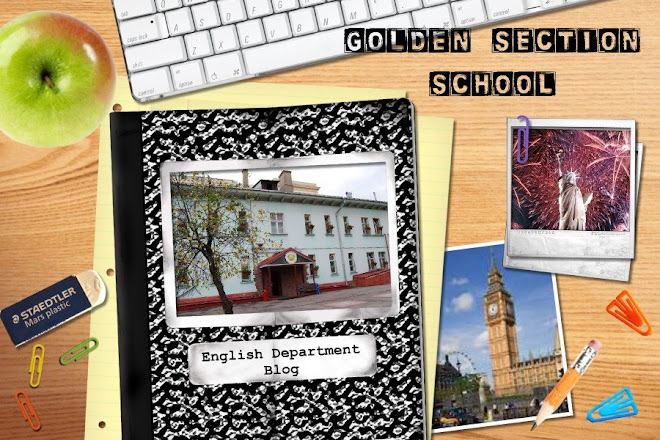We started off examining how post-World War II demographics changed, resulting in the growth of suburban areas. We looked at how easy access to cars also influenced the departure from cities; men were easily able to live further away from their jobs and commute on their own. Over time, inner cities became primarily populated by the poor, plagued by crime and violence.
This is an interesting topic to study within the context of a Russian school; here the situation is very different! The inner city areas of Moscow and St. Petersburg are the most desirable real estate! We've been discussing how cities differ in our two countries and offering possible explanations why: contrasting types of government; different cultural values; general demographics throughout the nation.
Today we are going to learn a song many have undoubtedly heard in discos--but might not have understood until now. The song "Y.M.C.A." by The Village People describes the centers set up in American cities by the "Young Men's Christian Association," an organization that seeks to offer struggling city men (and women, and children) assistance of all kinds: temporary housing, physical and intellectual activity, job training, meals and spiritual support.
Today Y.M.C.A. centers play an important role in inner-city revitalization; through their programs, many young men and women receive the help they need to improve their lives and rise above their circumstances.
Y.M.C.A.
The Village People
Young man, there's no need to feel down.
I said, young man, pick yourself off the ground.
I said, young man, 'cause you're in a new town
There's no need to be unhappy.
Young man, there's a place you can go.
I said, young man, when you're short on your dough.
You can stay there, and I'm sure you will find
Many ways to have a good time.
It's fun to stay at the Y-M-C-A.
It's fun to stay at the Y-M-C-A.
They have everything for young men to enjoy,
You can hang out with all the boys ...
It's fun to stay at the Y-M-C-A.
It's fun to stay at the Y-M-C-A.
You can get yourself clean, you can have a good meal,
You can do whatever you feel ...
Young man, are you listening to me?
I said, young man, what do you want to be?
I said, young man, you can make real your dreams.
But you've got to know this one thing!
No man does it all by himself.
I said, young man, put your pride on the shelf,
And just go there, to the Y-M-C-A.
I'm sure they can help you today.
It's fun to stay at the Y-M-C-A.
It's fun to stay at the Y-M-C-A.
They have everything for young men to enjoy,
You can hang out with all the boys ...
It's fun to stay at the Y-M-C-A.
It's fun to stay at the Y-M-C-A.
You can get yourself clean, you can have a good meal,
You can do whatever you feel ...
Young man, I was once in your shoes.
I said, I was down and out with the blues.
I felt no man cared if I were alive.
I felt the whole world was so tired ...
That's when someone came up to me,
And said, young man, take a walk up the street.
There's a place there called the Y-M-C-A.
They can start you back on your way.
It's fun to stay at the Y-M-C-A.
It's fun to stay at the Y-M-C-A.
They have everything for young men to enjoy,
You can hang out with all the boys...
Y-M-C-A.... It's fun to stay at the Y-M-C-A.
Young man, young man, there's no need to feel down.
Young man, young man, get yourself off the ground.
Y-M-C-A.... You'll find it at the Y-M-C-A.
No man, no man, does it all by himself...
Young man, young man, put your pride on the shelf!
Y-M-C-A....
